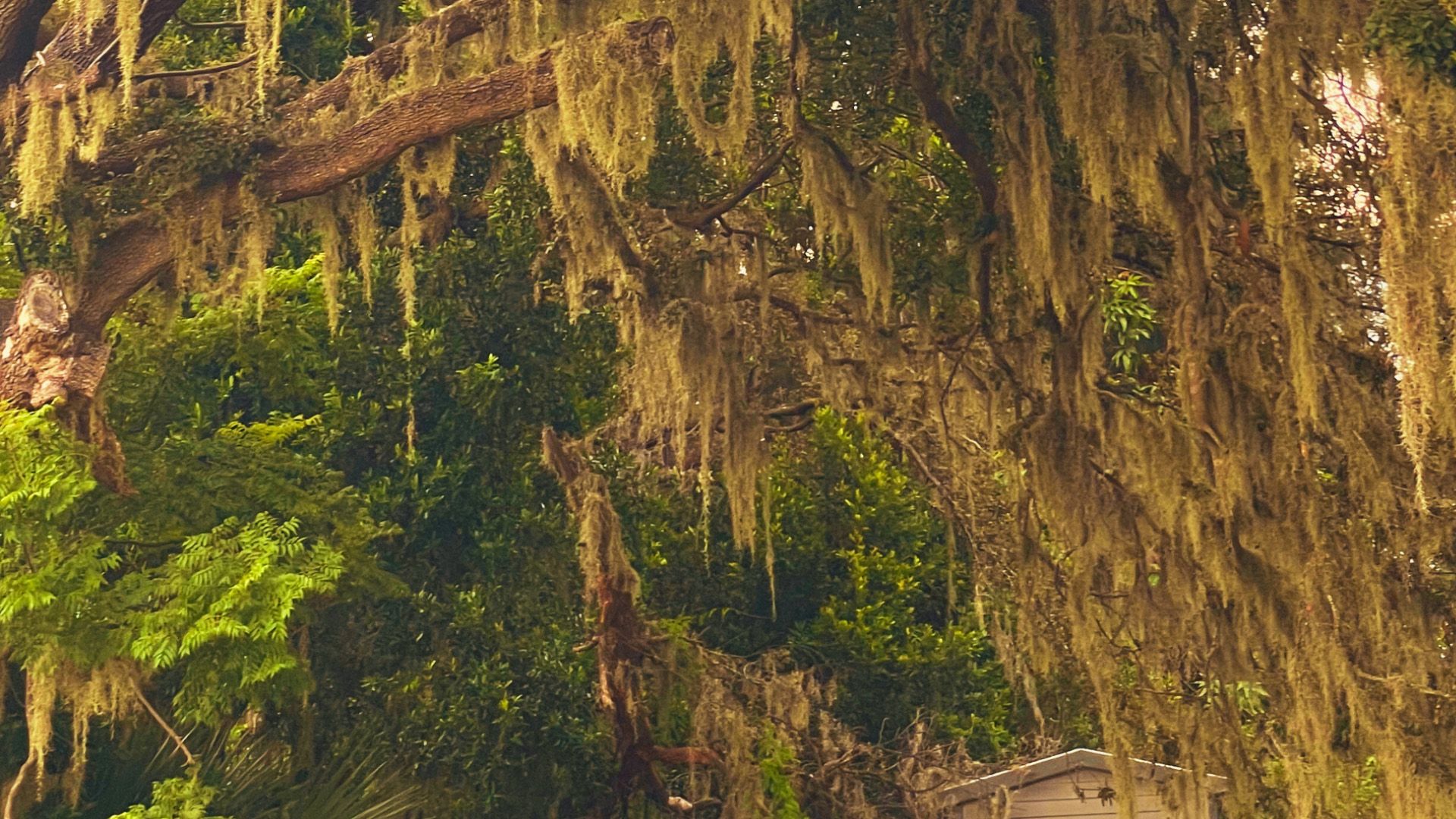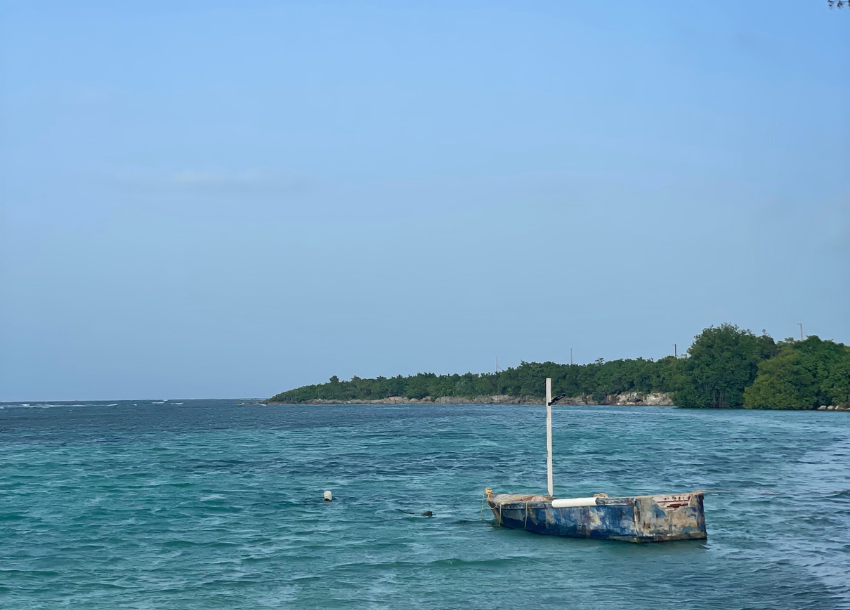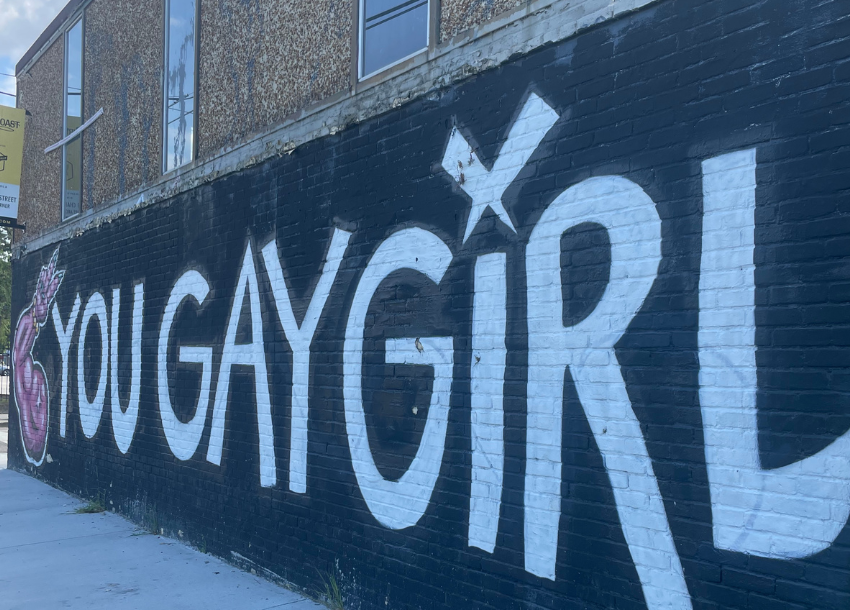The Self That is at Odds with Everything Around It
In a series of travel diary-entries, Makanaka Tuwe navigates space to question the systems that sustain the conditions of visibility, invisibility and erasure.
TW: Mention of British buggery laws that enforced violence on LGBTQIA+ communities.
To be always aware of your presence as a presence outside of yourself. And to have “others” constantly remark on your presence as outside of itself. Every space you occupy is public space, that is, space which is definable by everyone. This self which is unobservable is a mystery. It is imprisoned in the observed. Its own language is plain yet secret. Rather, obscured.
— Dionne Brand, A Map to the Door of No Return: Notes on Belonging, 49–51.
7 July, 2023, Miami, Florida
The flight to Miami was 19 hours long, and as we waited at the baggage carousel there was a marvellously dressed Black woman in all-white linen and Prada shades, resort ready. There was a South Sudanese family with a bright-eyed toddler peering from their stroller. There was a Haitian couple speaking to each other in Haitian Creole. There were many faces, and I was thankful my mask was hiding my smile. To taste a wee morsel of the African diaspora is something my senses delight in. What a shame our vastness is often funnelled, bottled up and sold as a singular culture, as opposed to the multiplicities of the free-flowing forms we embody across the globe. As always, I wondered and marvelled at the different histories, stories and crossings that had happened across time and space to have us standing together in a stuffy airport waiting for our luggage. Within 24 hours, I am seated at a dab bar in Calle Ocho, tearing up as I share how great it felt to cast off the burden of being watched and gawked at. It felt like taking your bra off after a long day. And trust me, as a DD baddie I know what I’m talking about. While I had other things to be hypervigilant about, because let’s bffr I was in the United States of America, there was a rhythm I could easily slip into undetected that is contested with every “where are you FROM”, or “are you sure I didn’t see you performing on stage earlier” at festivals, concerts and shows. It’s not that I want to be identified as a Kiwi or desire to be – far from it. It’s that I want to be left alone. It’s not a validation of being from here that I desire. It is for my personal space to not be a public library that someone can flick through to satiate their curiosity.
What a shame our vastness is often funnelled, bottled up and sold as a singular culture, as opposed to the multiplicities of the free-flowing forms we embody across the globe.
11 July, 2023, Montego Bay, Jamaica
After four nights in sleepless Miami, we landed in Montego Bay at about 5pm Jamaican time and stepped out into the humid heat. There was a warmth and humidity in the air – the sound of music, people and laughter made me nostalgic. The slowness in pace didn’t match the man-made urgency that reminded me of Zimbabwe. From our apartment pool, you could see the sun setting over the Atlantic Ocean. Down the road was the rum shop that satisfied all my oxtail cravings, and next to it was the patty store we stopped at every morning. Although we had established a routine of sorts with the chef – who recommended things that we hadn’t tried yet – when it was time to exchange Instagram handles, I froze. It was easier to say we weren’t social media users than it was to potentially muddy a good thing. Who wants to open Pandora’s box? Say we exchanged handles and he realised that his reading of us as friends, sisters or colleagues was incorrect and we are actually lovers – what would that mean for our interactions? And that’s one of the things that is heartbreaking – the assumption, for your safety, that rejection is highly likely. Temporary rejection being the least of your worries. As Dionne Brand notes, “one enters a room and history follows”. In this instance, history being the British buggery laws enforced in the Victorian era across British colonies. Buggery laws included maximum life imprisonment and the death penalty for sodomy or non-procreative sexual activity. While England repealed the buggery law of 1861 in 1967, sexual intercourse between same-sex partners is still legally punishable by imprisonment in Jamaica. Jamaica isn’t the only place where variations of laws inherited from British Common Law can be found; across the African continent, the criminalisation of LGBTQIA+ communities can also be traced to British colonial origins.
Montego Bay, Jamaica (Photography: Supplied)
As I lied about not having Instagram, I reflected on how the Jamaican leg of the trip had been a performance of what José Esteban Muñoz refers to as disidentification. Muñoz’s theory of disidentification examines how minoritised subjects negotiate identity in spaces that punish them or foster erasure. This negotiation involves engaging in performances for survival, resistance and to enact agency. Two days after we landed, I had scolded a man outside a nightclub in an accusatory tone for suggesting that ‘my sister’ and I were ‘dykes’, just the type he loved to help in the bedroom. Couldn’t he tell that we had the same mother and different daddies?! Besides that, judging from the orgasm gap, it isn’t ‘dykes’ who need help. Apologetically, he had slithered back into the darkness of the early morning, thankfully with the woman who had invited herself to our room as we left the club, noting that my full hips had called to her. While this sisterly performance was enough to buy my partner and I time to get in our car and out of there, the interaction served as a warning sign. Our Blackness enveloped us in care and fellowship. Yet suspicion of what we were, two women in love, could set us apart. Being tourists meant we were a different kind of Black, one that is tolerated. Passing through means you leave the place blemish free, your sexuality a shameful stain that isn’t of them. That doesn’t belong to them.
These performances were and are an ongoing navigation of politics and power that looks and feels different in different places and spaces. It makes me think of the local non-heteronormative Jamaican population. The varying experiences they hold and how they nurture home. The strategies they employ to foster a sense of belonging. It made me think of the African diasporic Queer population: when the weight of anti-Blackness becomes too much to bear, where do we go when we feel homesick? As Notisha Massaquoi says, “The politics of dreaming of home, which has been a core coping mechanism for diasporic subjects, can no longer be a remedy for grief and loss without a commitment to challenging current conditions for queer citizens [in country of origin].” Shit, where do any of us go?
When the weight of anti-Blackness becomes too much to bear, where do we go when we feel homesick?
18 July, 2023, Orlando, Florida
After a week in Montego Bay, I am standing in Lake Alfred in front of an old Spanish-moss-covered tree as my lover’s 94-year-old grandfather tinkers around with his lawnmower. I wonder about the times, spaces and places his body has travelled through. I wonder about the times and people the tree has known and will know. A few days later I watch my lover, her father, grandfather and cousin in conversation. Three generations chatting away at a family reunion where extended family histories and stories converge, lineages continuing in their own varying ways.
27 July, 2023, Atlanta, Georgia
Ten days later, I enter what feels like a portal. Atlanta becomes this mythic representation and glimpse into a Queer Black future I yearn for. A representation of which does not exist where I call home. Neither does it exist anywhere I’ve ever called home. Thinking about raising a Black child with Queer parents in Aotearoa is my Roman Empire. Yet, here, I was seeing families with structures that resemble what mine might look like one day. Here was an alternate reality and a possibility, where my shape didn’t have to shift too much, staring right at me. One where I’m not worrying about who is going to play with my imaginary children. I’m certain Atlanta comes with its own stuff – no place is short of its stuff, yet often it’s about choosing the stuff you can bear to live with.
Thinking about raising a Black child with Queer parents in Aotearoa is my Roman Empire.
5 August, 2023, Auckland, New Zealand
Honestly, though, the trip, which was six different time zones in four weeks, still feels like a dream that I am returning to. One that I’m constantly revisiting with a slow indulgence that rivals that of a long lunch, so that the feeling doesn’t run out and away from me. Although I have always been a solo traveler, this was my first time on a trip outside Oceania in a visibly Queer coupling. Sometimes it’s flashbacks of my partner and I paying our respects at Congo Square in New Orleans, sometimes it’s the Orlando heat, sometimes it’s the cold, painful realisation that our love for each other places us in danger and it’s a mere passport that saves us. The privilege a passport provides is like knowing the promoter at a club; of course, not to downplay the realities and restrictions of colonial borders, sanctions and wars. You don’t have to line up to get in, and if you do, it’s a relatively short line. Once you’re in the club you have access to table service, space to actually dance and move around without anybody spilling their drink on you, and potentially a separate bathroom. Passport privilege means that not only can I come in and out of places and spaces, I can also come in and out of myself. My body – the conduit for diasporic Queer shapeshifting.
New Orleans (Photograph: Supplied)
As one stands on a street corner in downtown Los Angeles, or at a fruit stand in Ochos Rios – Jah Cure’s ‘Longing For’ blaring from a sound system – or at the baggage pick-up in Tāmaki Makaurau, one’s physical presence becomes a kaleidoscope of meetings and crossings, of histories and stories. These histories and stories are a marker of how much space one can occupy, which spaces one can occupy, and the form one can take in each space. The body is read as the primary negotiator of interaction between location, one’s physical presence, history and the stories those experiencing us form. The same street corner, fruit stand or baggage carousel engaged by a body that is read differently can take on a different feeling, form and experience. As bell hooks reflected in a conversation at The New School with Marci Blackman, Shola Lynch and Janet Mock, Queer is “the self that is at odds with everything around it.”
Header photo: Florida (Makanaka Tuwe)



